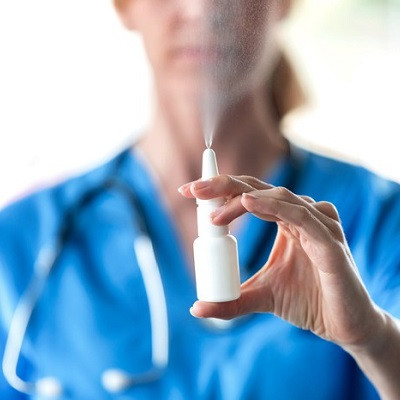
2021-06-12
Visited : 1828
An international team of scientists from institutions in Mexico, Spain, and Russia has released promising findings from its study investigating the impact of silver nanoparticles on the transmission of COVID-19. The team’s data, published on the preprint server medRxiv, shows that mouthwash and nose rinses made with silver nanoparticles may be an effective method of protecting healthcare personnel exposed to the SARS-CoV-2 virus.
Healthcare Workers at Increased Risk of COVID-19 Infection
Healthcare professionals who care for patients infected with the SARS-CoV-2 virus are at increased risk of being exposed to the virus, and, therefore, face higher mortality and morbidity than the general population. In hospitals, healthcare professionals come into close proximity to those diagnosed with COVID-19, giving the virus the opportunity to spread via physical contact and the breathing in of infected water droplets expelled by infected patients. Not only does this put healthcare professionals at a greater risk of infection, but it also increases the risk posed to their families and communities.
A 2020 study published in The BMJ found that over the first three months of the COVID-19 pandemic, healthcare workers in patient-facing positions were three times more likely to be admitted to hospital with COVID-19 than healthcare workers not in patient-facing positions. Household members of these front-facing workers were twice as likely to be hospitalized.
There is a strong need to develop effective and scalable preventative techniques to protect healthcare workers from contracting SARS-CoV-2 infection from their patients.
Developing Strategies to End the COVID-19 Pandemic
To address this need and reduce rates of morbidity among healthcare professionals, global governments have implemented various health interventions, including the isolation of COVID-19 patients and the mandatory use of personal protective equipment to reduce potential contact with infectious areas such as the respiratory and conjunctive tract.
Additional international strategies have also been implemented to curb the spread of the virus, such as containment, diagnosis and monitoring, and the development of vaccines. International healthcare agencies have also attempted to develop antiviral drugs against SARS-CoV-2, however, there have been very few that have reached approval. Across the globe, vaccination remains the key strategy to tackling COVID-19 in the long term. However, not all countries and regions have the same access to approved vaccines.
Therefore, SARS-CoV-2 infection in hospitals remains problematic and healthcare professionals still face an increased risk of contracting the virus. The current study looks to address this problem by expanding on previous research that demonstrated the in vitro antiviral effect of silver nanoparticles (AgNPs) against SARS-CoV-2.
Mouthwash and Nose Rinse with Silver Nanoparticles Inhibits COVID-19 Infection
The current research project tested AgNPs in vitro, which showed them to have an inhibitory effect on SARS-CoV-2 infection in cell cultures. Following on from this, the team developed mouthwash and nose rinse with ARGOVIT® AgNPs. They tested the effect of these products on preventing COVID-19 infection in a sample of high-risk health workers in General Tijuana Hospital, Mexico, a hospital that exclusively cares for patients diagnosed with COVID-19.
In the study, an experimental group used mouthwash and nose rinse with AgNPs and the control group used their traditional counterparts. The results showed that the experimental group had a significantly lower incidence of SARS-CoV-2 infection compared with the control group. The team concluded that mouthwash and nasal rinse with AgNPs are effective at helping to prevent health personnel exposed to patients diagnosed with COVID-19 from contracting the virus.
This research may be instrumental in developing new preventative methods to protect at-risk groups from COVID-19 infection.
Read the original article on AZoNano.